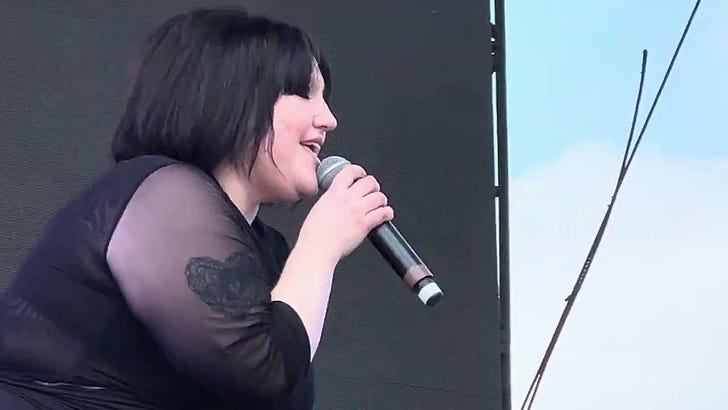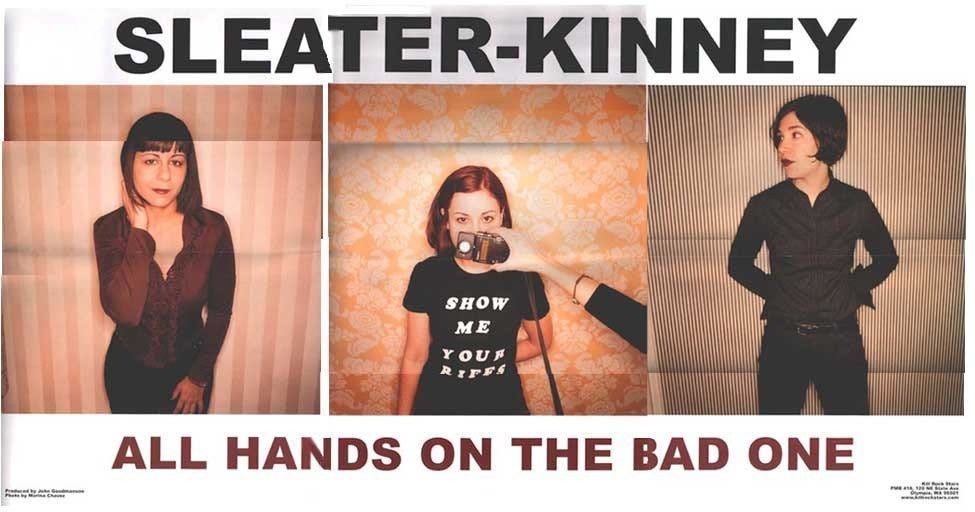“Put All the Feminist Dyke Bands on Before the Sun Goes Down"
The long worn road to Sapphic Pop is slick with queer punk sweat.
A few weeks ago, I went to a one-day music festival called Just Like Heaven at Brookside in Pasadena. With headliners Death Cab for Cutie and the Postal Service, the majority of the lineup was indie rock and electro-pop bands with marginal hits but significant followings built over the last twenty years. The real draw for me was much earlier in the day, the sun-baked slots given to CSS, Gossip, and Tegan and Sara.
“Put all the feminist dyke bands on before the sun goes down!” Beth Ditto said as soon as she took the stage. “You don’t know what happens when those lesbians and feminists roam around at night. They’re like, ‘Get it over at six!’”
Hearing what Beth Ditto had to say was exactly why I couldn’t miss Gossip’s long-awaited return or not see CSS’s potential last show ever as they threaten retirement after their own lengthy hiatus. But even with Tegan and Sara having consistently toured and recorded for 25 years now, it likely wasn’t lost on anyone who’d shown up for the beginning of the day that the festival’s timeslots, as was the case the previous year with Peaches and Fever Ray, were telegraphing how much reverence there was for queer artists — not enough.
“If you remember this song, you’re 40,” Beth Ditto said before launching into “Listen Up.” (In my case, she was right.) She joked with bandmate Nathan Howdeshell that the festival should be called “Remember Them?” (“No, not really,” she said in response. “Those were crazy times.”)
Going to see these bands was partly about nostalgia — how could it not be? The soundtrack to self-discovery is an important one, and I was coming into my queerness right when bands like CSS, Gossip, and Tegan and Sara were grouped into an indie sleaze-adjacent genre by personal identities more often than musical ones. But the two aren’t so unrelated for me — disco, folk, blues, pop, and rock ‘n’ roll are all a part of queer history, just as queers are integral to music history more broadly. In my own personal history, the two fuse together in moments like turning a curious eye toward a Sleater-Kinney poster hanging in the record store I worked at in college or finding Le Tigre on the cover of a Curve magazine at a Barnes and Noble (making the lyrics to “TKO” all the more ironic).
Being able to dance to music made by dykes, feminists and queers was my way into myself and my community. Every Tuesday night in my early twenties, my friends and I would go to Outdanced at the Funky Buddha Lounge in Chicago to see acts like Peaches, Leslie and the Lys, and Swan Island take a tiny stage in a sweaty room stacked with bodies, not one of them standing still by the time it turned Wednesday. I took every chance I could to live inside those spaces — writing about queer music, booking queer bands for festivals and benefits, and hosting a podcast called “Chick Habit” with my friend and fellow musichead Mia. I was in awe of femmes like Beth Ditto, especially, who was so fiercely and loudly herself in a cruel, cruel world she sings of in “Heavy Cross.” I had a personal vested interest in turning the uninitiated on to just how powerful music from feminist dykes could be.
Keep reading with a 7-day free trial
Subscribe to LIT FEMME to keep reading this post and get 7 days of free access to the full post archives.




